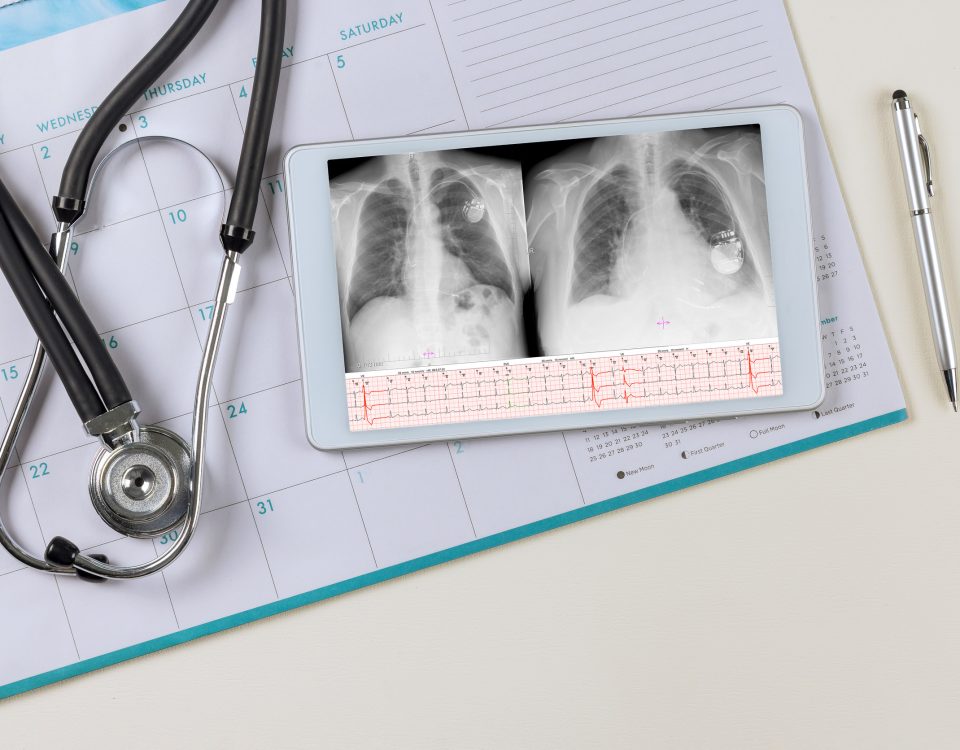Treatment for Metastatic Breast Cancer
October 15, 2025
Trigeminal Neuralgia: What It’s Often Confused With
November 17, 2025Lung Cancer and Radiation Side Effects
Lung cancer remains one of the most commonly diagnosed cancers, and treatment often involves radiation therapy. At Phoenix Cyberknife and Radiation Oncology Center, we believe it’s important to understand not only how treatment works but also the side effects that can come with it.
1. Why Radiation is Used in Lung Cancer Treatment
Radiation plays a central role in treating lung cancer because of its ability to target cancer cells directly. For many patients, it’s a way to shrink tumors, ease symptoms, and improve quality of life.
At Phoenix Cyberknife and Radiation Oncology Center, we use advanced technology to deliver radiation with precision. This helps to maximize effectiveness while working to reduce unnecessary damage to surrounding healthy tissues.
2. Common Short-Term Side Effects of Radiation
When undergoing radiation for lung cancer, some patients experience fatigue, skin irritation, or changes in appetite. These side effects are usually temporary and can be managed with supportive care.
At Phoenix Cyberknife and Radiation Oncology Center, our team monitors patients closely during treatment. According to the National Cancer Institute and StatPearls (NCBI), short-term effects may also include cough, chest pain, or shortness of breath. We provide guidance on diet, rest, and symptom management to make the experience as comfortable as possible.
3. Lung Cancer and Long-Term Effects of Radiation
Radiation therapy can sometimes cause lasting effects in patients with lung cancer, including scarring of lung tissue or changes in breathing capacity. These risks vary depending on the individual and the type of treatment received.
At Phoenix Cyberknife and Radiation Oncology Center, we aim to minimize these risks with targeted approaches like CyberKnife technology. Research from the National Center for Biotechnology Information notes that radiation pneumonitis and pulmonary fibrosis are potential long-term effects, which is why precise targeting is so important.
4. Balancing Risks and Benefits in Radiation Treatment
Every lung cancer treatment plan requires balancing potential benefits with possible side effects. For many patients, the ability to control tumor growth outweighs the risks associated with radiation therapy.
At Phoenix Cyberknife and Radiation Oncology Center, we tailor every treatment plan to the patient’s needs. This individualized approach helps ensure patients get the most benefit with the least amount of side effects.
5. Supportive Care During Lung Cancer Treatment
Side effects from radiation for lung cancer can be challenging, but supportive care makes a difference. Emotional health, nutrition, and physical activity all play a role in how patients handle treatment.
Phoenix Cyberknife and Radiation Oncology Center provides access to supportive services that address both the physical and emotional aspects of cancer care. We believe treating the whole person is essential for better outcomes.
6. Advances in Radiation for Lung Cancer Patients
Ongoing research continues to improve how radiation is used in lung cancer care. Newer techniques allow more accuracy, shorter treatment times, and better protection for healthy tissue.
At Phoenix Cyberknife and Radiation Oncology Center, we stay at the forefront of these advances. Our commitment is to offer the best possible care while helping patients understand every step of their treatment.
Lung cancer requires careful, informed treatment choices, and understanding side effects is part of that journey. At Phoenix Cyberknife and Radiation Oncology Center, we are here to provide clarity and support. If you have questions about lung cancer or radiation side effects, contact Phoenix Cyberknife and Radiation Oncology Center today.



